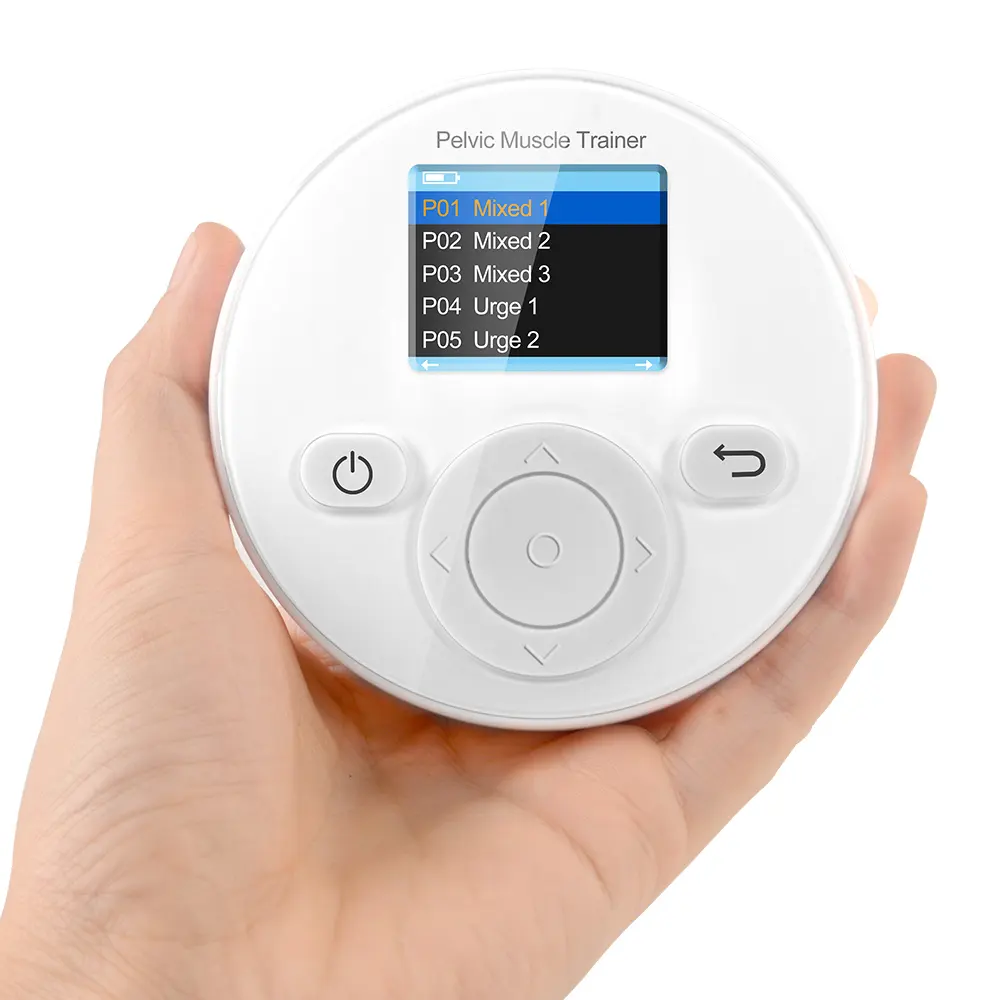Introduction
The word "incontinence" often comes with a heavy weight—a feeling of embarrassment, a loss of control, and the fear that your daily life will never be the same. Whether it's a small leak when you laugh or a more urgent need that's hard to control, the first thing to know is this: you are not alone, and you can take back control.
Managing incontinence isn't about hiding or limiting your life; it's about adopting smart, proactive strategies that allow you to live fully and confidently. This definitive guide moves beyond quick fixes to provide a holistic framework for managing bladder and bowel incontinence in your daily life. We will cover the practical products, the powerful lifestyle tweaks, the essential exercises, and the crucial emotional strategies that, together, form a blueprint for freedom.
Chapter 1: The Foundation: Diagnosis and Understanding
Before effective management can begin, understanding is key. Incontinence is a symptom, not a disease, and it comes in different forms.
Stress Incontinence: Leakage occurs with physical pressure (stress) on the bladder from coughing, sneezing, laughing, or exercise.
Urge Incontinence: A sudden, intense urge to urinate, followed by an involuntary loss of urine. Often linked with an "overactive bladder."
Overflow Incontinence: The constant or frequent dribbling of urine due to a bladder that doesn't empty completely.
Functional Incontinence: A physical or mental impairment (like severe arthritis or dementia) prevents you from reaching the toilet in time.
Action Step 1: Consult a Healthcare Professional.
Self-management is powerful, but a proper diagnosis is critical. A doctor can rule out underlying conditions (like UTIs), identify your type of incontinence, and create a targeted treatment plan. This is your most important first step.
Chapter 2: The Practical Toolkit: Products for Confidence and Security
The right products are your first line of defense, providing the security needed to engage in daily life without fear.
1. Absorbent Products:
Pads & Guards (Liners): Ideal for light stress incontinence. They are discreet, fit into regular underwear, and are perfect for minor leaks.
Protective Underwear (Pull-Ups): Function like regular underwear but with high absorbency. Excellent for moderate incontinence, offering easy on/off.
Briefs with Tabs: Designed for heavy incontinence. The tab-style sides allow for easy changes while standing or lying down, which can be helpful for caregivers or overnight use.
Bladder Control Pads for Men (Drip Pouch): Specially designed pouches that fit over the penis and are held in place by snug underwear, containing light to moderate leakage.
2. Skin Protection:
Barrier Creams: Create a protective layer between your skin and moisture to prevent irritation and rashes.
Cleansing Sprays & No-Rinse Body Washes: Allow for gentle, thorough cleaning without the need for soap and water, which can be drying, especially in public restrooms.
3. Functional Aids:
Waterproof Mattress Protectors: Essential for a good night's sleep without worry.
Portable Urinals & Commodes: Vital for car trips, outings, or bedside use when a toilet isn't readily accessible.
Odor-Neutralizing Sprays: Specifically formulated to eliminate urine odor, not just mask it, providing psychological comfort.
Chapter 3: The Lifestyle Blueprint: Daily Habits for Better Control
Your daily routine holds immense power to manage and reduce symptoms.
1. Fluid Management (It's Not About Drinking Less):
Stay Hydrated: Concentrated urine is a bladder irritant. Drink 6-8 glasses of water spread evenly throughout the day.
Avoid Triggers: Common irritants include caffeine (coffee, tea, soda), alcohol, artificial sweeteners, carbonated drinks, and spicy or acidic foods (like tomatoes and citrus). Try eliminating them for a week to see if symptoms improve.
Schedule Sips: Slow down drinking 2-3 hours before bedtime to reduce nighttime trips.
2. Dietary Adjustments for Bowel and Bladder Health:
Fiber is Your Friend: Constipation puts immense pressure on your bladder and pelvic floor. A diet rich in fiber (fruits, vegetables, whole grains) keeps stools soft and easy to pass.
Monitor Bowel Habits: Aim for a regular, daily bowel movement to relieve pressure on the bladder.
3. Bladder Retraining:
This technique helps reset your bladder's "overactive" signaling.
Keep a Diary: For a few days, record what you drink, when you urinate, and when leaks occur.
Create a Schedule: Based on your diary, establish a set time for toilet trips (e.g., every 2 hours). Go to the toilet at these times, whether you feel the urge or not.
Gradually Extend: Over weeks, slowly increase the time between scheduled voids by 15-30 minutes. The goal is to train your bladder to hold more urine for longer periods.
4. Toilet Techniques:
Double Voiding: After you finish urinating, wait a moment, lean forward, and try again to ensure your bladder is fully empty.
Avoid Straining: Don't push or strain to urinate or have a bowel movement, as this weakens the pelvic floor over time.
Chapter 4: The Body's Inner Strength: Building a Resilient Pelvic Floor
Your pelvic floor muscles are your body's natural internal support system for continence.
-
Kegel Exercises Are Key: These exercises strengthen the muscles that control urine flow.
How to Do Them: Squeeze the muscles you would use to stop the flow of urine or to hold in gas. Avoid squeezing your thighs, glutes, or abdomen. Hold for 3-5 seconds, then relax for 5-10 seconds. Aim for 10-15 repetitions, 3 times a day.
Be Patient: It can take 3-6 months of consistent practice to see significant improvement in incontinence symptoms.
When to Get Professional Help: If you are unsure you're doing them correctly (very common!), a pelvic floor physical therapist can provide biofeedback and personalized guidance for maximum effectiveness.
Chapter 5: Navigating the World: Social and Emotional Strategies
The psychological impact of incontinence is real, but it can be managed.
1. Planning Your Outings (The "Just-in-Case" Plan):
Scope Out Restrooms: Upon arriving at a restaurant, mall, or park, identify the nearest restrooms.
Create a "Go Bag": Keep a small, discreet bag with a fresh absorbent product, a zip-lock bag for disposal, cleansing wipes, and a change of underwear in your car or bag.
Wardrobe Wisdom: Choose clothing that is easy to manage in a hurry—elastic waists, dresses, and avoid complicated belts or jumpsuits.
2. Handling Accidents with Grace:
Stay Calm: Accidents happen. It's a medical condition, not a personal failure.
Have a Disposal Plan: Carry small, scented disposal bags (like dog-waste bags) for used products.
Know Your Script: If you need to excuse yourself, a simple, confident "Please excuse me for a moment" is all that's needed. You owe no one an explanation.
3. Addressing the Emotional Toll:
Talk to Someone: Confide in a trusted friend, partner, or therapist. Sharing the burden can be incredibly liberating.
Join a Support Group: Connecting with others who understand your experience can reduce feelings of isolation and provide practical tips.
Focus on What You Can Control: Shift your mindset from what you've lost to the powerful steps you are taking to manage your health.
Conclusion: Your Life, On Your Terms
Living with incontinence is a journey of adaptation, not a life sentence of limitation. By combining the right products for immediate security, the smart lifestyle habits for long-term improvement, the targeted exercises for internal strength, and the compassionate emotional strategies for mental well-being, you can build a life defined not by fear of leaks, but by confidence and freedom.
You have the power to be the author of your story. Start with one step—perhaps scheduling a doctor's appointment or buying a sample of absorbent products. Each small action you take is a declaration that you are in control. Embrace the strategies, be patient with your progress, and step back into your life with confidence.





